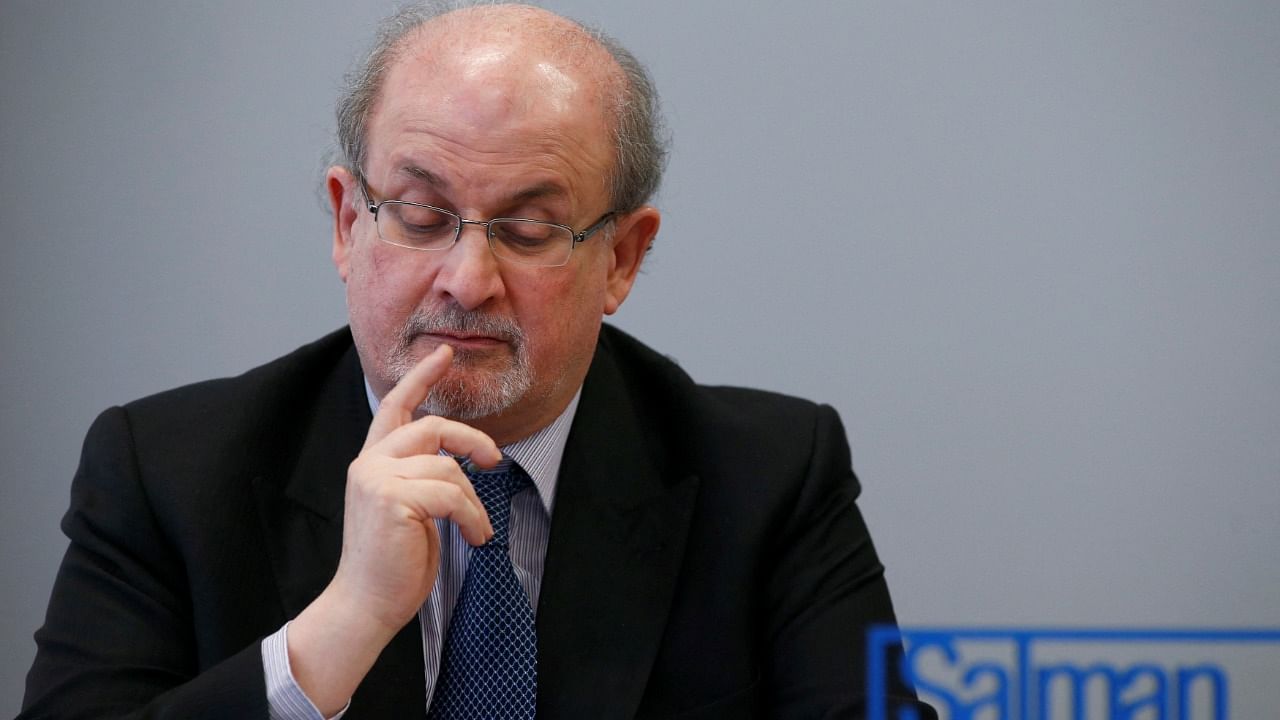
British author Salman Rushdie, who was living under the shadow of an Iranian fatwa issued in 1989 over his book The Satanic Verses, was on Friday attacked at a New York retreat where the author was due to speak.
Rushdie, a defiant critic of religion and of leaders who use religion for political gains, had often bristled at security, despite knowing he was at risk of attacks from fundamentalists and passionate supporters of those politicians.
New York state police identified the suspect involved in the attack as Hadi Matar, a 24-year-old from Fairfield, New Jersey. A probable motive remained unclear. The attack, which left him a ventilator could cost him an eye.
Here's how the world reacted to the attack on Rushdie.
UN Secretary General Antonio Guterres was "appalled" to learn about the attack on Rushdie, saying that in no case is violence a response to words spoken or written by others in their exercise of the freedoms of opinion and expression.
"In no case is violence a response to words spoken or written by others in their exercise of the freedoms of opinion and expression," Guterres said, conveying his wishes for Rushdie's early recovery.
A spokesperson for the Council on American-Islamic Relations, the largest Muslim civil rights group in the United States, said he was concerned that people might rush to blame Muslims or Islam for the stabbing before the attacker’s identity or motive were known.
“American Muslims, like all Americans, condemn any violence targeting anyone in our society,” Ibrahim Hooper said. “That goes without saying. We will have to monitor the situation and see what facts come to light.”
Author Neil Gaiman wrote on Twitter that he was “shocked and distressed” about the attack.
“He’s a good man and a brilliant one and I hope he’s OK,” he said.
In a statement issued Friday afternoon, author Ian McEwan echoed his peers in calling the attack “appalling” and said Rushdie is “an inspirational defender of persecuted writers and journalists.”
“These are the freedoms that underpin all our rights and liberties,” McEwan added.
"I just learned that Salman Rushdie was attacked in New York. I am really shocked. I never thought it would happen. He has been living in the West, and he has been protected since 1989. If he is attacked, anyone who is critical of Islam can be attacked. I am worried," said author Taslima Narseen, who fled Bangladesh in 1994 after after a court said she had hurt Muslims' feelings with her novel 'Lajja'.
"Horrified to learn that Salman Rushdie has been attacked at a speaking event in upstate New York. Wish him a speedy recovery," said Padmi Shri awardee author Amitav Ghosh.
Author Tarek Fatah, who also faced threats over his religious views, tweeted a photo of The Satanic Verses, saying "In Solidarity with Sir Salman Rushdie. My he recover from his wounds and live long to defy the medieval monsters who have never read, nor can write with Salman Rushdie’s wit and grace".
Author-politician Shashi Tharoor also condemned the attack on Rushdie, saying "Utterly horrified & shocked by the stabbing of Salman Rushdie. Wish him a speedy & complete recovery from his wounds, even though, with a sinking heart, I recognize that life for him can never be the same again. A sad day, worse if creative expression can no longer be free &open."
"I condemn the barbaric attack on Salman Rushdie by some fanatiZ. I hope that NY police and the court will take the strongest action possible against the attacker," said lyricist Javed Akhtar in condemnation of the attack.
(With inputs from agencies)